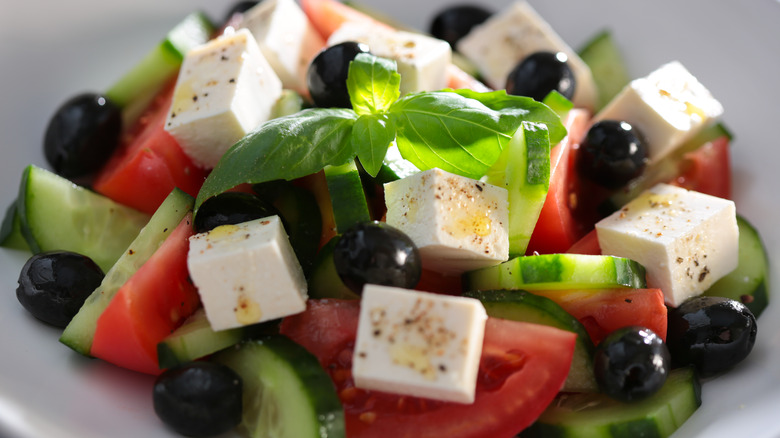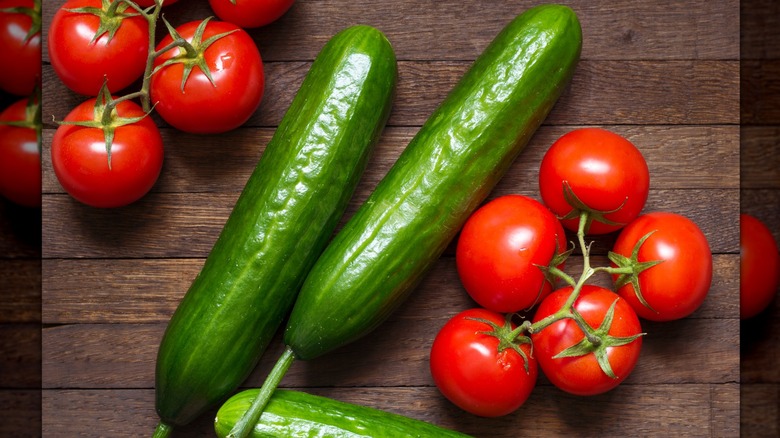The 2 Temperature Rules You Should Always Follow When Making Greek Salad
Greek salad is a hearty and nutritious dish that is simple to make but requires a little mindfulness when preparing. If you've ever enjoyed one, you know that, in its simplicity, a Greek salad must be assembled with just the right ingredients. Not just bright, ripe produce but veggies served at the correct temperature as well. The right conditioning is key to two foundational ingredients: Ideally, a perfect Greek salad is enjoyed with room-temperature tomatoes and fridge-cold cucumbers.
Greek salad is often associated with the warm weather months because it calls for fresh produce like tomatoes, cucumbers, and bell peppers (depending on your recipe). While you want to get tomatoes and cucumbers that are in season, there are a few other things to keep in mind. First, because your kitchen will be warmer, you want to use your produce as soon as you get it to prevent spoilage. In a perfect world, you would make your Greek salad with veggies plucked straight from your garden, but if that's not in the cards, try to source local produce to ensure you're using the freshest possible ingredients. Beyond that, remember that the key to a great Greek salad lies in how you store your veggies.
How to store produce
It's important to never refrigerate your tomatoes unless they're about to go off. When you introduce tomatoes to temperatures around 40-45 degrees Fahrenheit, the fruit can undergo what is known as a "cold injury," which will begin to break down the flesh of the tomato. You may have placed a beautifully ripe tomato in your refrigerator, but in just a few hours, you will retrieve a mealy, flavorless thing hardly suited for stewing. Of course, you can put your tomatoes in the fridge if they're at risk of spoiling, but we wouldn't recommend using those in a Greek salad.
Conversely, keeping cucumbers in your refrigerator right until preparation will ensure that they remain crisp in your salad because of their high water content. The thing that makes cucumbers delicious also makes this fruit more susceptible to spoilage, so keep them cold to retain cellular moisture. However, it's important not to keep your fridge too cold as cucumbers, like tomatoes, can experience cold injury as well — so keep them in the warmest part of your fridge away from the cooling element. Keep these simple temperature tips in mind the next time you're whipping up a batch of Greek salad and see what a difference it makes.

